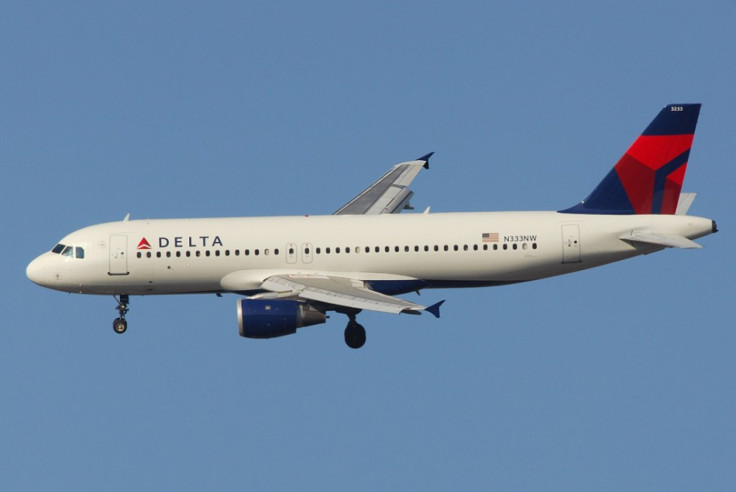Consumer Reports' Annual 'Naughty Or Nice' List: See What Kind Of Policies Customers Love/Hate

Retail customers may appreciate simplicity and honesty in prices and fees, but retailers sometimes hit customers with unexpected charges or fees -- just look at most mobile phone bills, credit card rule booklets and department store exchange policies -- because it's such a reliable revenue generator.
That's a big part of why Consumer Reports’ annual list of “Naughty or Nice” companies is filled -- as it has been in years past -- with examples of customers being lured with in-your-face offers that come with not-so-obvious caveats. Companies that use such tactics get tagged as "Naughty" in the publication's annual list. Conversely, companies with transparent and simple pricing win the label “Nice.”
While part of the problem is coming from consumers themselves who don’t read the fine print, the growth in the use of unexpected or hidden fees or charges in recent years had led to the popularity of the term “Gotcha Capitalism” -- referring to companies’ apparent increasing dependence on supplemental service fees, penalties or pricing practices that catch consumers off guard.
Fees pertaining to bank services, telecommunications contracts and airlines are three popular examples, but consumers are also finding refund and exchange polices can adhere to what the late '60s-era American Catholic Archbishop Fulton J. Sheen once said: “The big print giveth, and the fine print taketh away.”
Here are the habits Consumer Reports identified in this year's “Naughty or Nice” list as ones consumers are paying closer attention to:
Refund and exchange policies
The Naughty: Household goods and consumer electronics dealer Abe's of Maine of Edison, N.J., was dissed for limiting a large number of the goods it sells from its 30-day refund guarantee policy. Online computer parts and electronics vendor TigerDirect.com -- a division of Systemax Inc. (NYSE:SYX) of Port Washington, N.Y. -- was singled out for a vague policy that allows it to charge a re-stocking fee of 25 percent of the price of the returned item “at TigerDirect’s sole discretion.”
The Nice: Mid-range department store chain Kohl's Corporation (NYSE:KSS) of Menomonee Falls, Wis., was commended for its “No Questions Asked -- Hassle Free” return policy. Seattle’s fashion specialty retailer Nordstrom, Inc. (NYSE: JWN) was given kudos for a similar return program as well as its standing free shipping policy. Also commended for liberal return policies were housewares manufacturer Oxo, a division of Bermuda-based Helen of Troy Limited (Nasdaq: HELE); Publix Super Markets Inc. of Lakeland, Fla.; Safeway Inc. (NYSE: SWY) of Pleasanton, Calif.; and Red Wing Shoe Company, Inc. of Red Wing, Minn.
Unexpected charges: Always “Naughty”
Slapping consumers with extra charges for services is a specialty of telecommunications companies and airlines, so it’s no surprise that two of each make it to this year’s “Naughty” list.
Atlanta-based Delta Air Lines, Inc. (NYSE: DAL) made it on the list this year for inexplicably high charges to refund tickets. One example: a $248 economy class ticket could be made refundable for an additional $489. Discount carrier Spirit Airlines Incorporated (Nasdaq: SAVE) of Miramar, Fla., was singled out for its multi-tier carry-on baggage fees that cost between $28 and $90 per bag.
From the world of telecom: New York-based Time Warner Inc. (NYSE: TWX) has received flak for deciding to charge customers a monthly $3.95 modem rental fee. The company says the fee is optional, but it retroactively applied the fee to customers that had accepted the company’s modem because there was no charge. Those customers must make arrangements to get the old modem back to the company.
Vonage Holdings Corp. (NYSE: VG) of Holmdel, N.J., which offers homes and businesses Internet telephony, was given the naughty wag by the magazine for tripling its “Regulatory, Compliance and Intellectual Property Fee” to $2.99. Consumer Reports says the fee is disguised with official-sounding language to make it sound like a government-mandated levy. The company explains that it’s a fee associated with compliance with federal agencies, including costs associated with helping authorities prevent online fraud; in other words: the cost of doing business.
One company was commended for its transparent pricing: Drury Inns, Inc. of St. Louis, Mo., got the thumbs up for its policy not to tag on extra fees and charges for reservations while offering such extras as two meals a day and 60 minutes of long-distance calls a day.
“Free” is always “Nice”
Companies that offered extras without adding on to the price tag were give the nod of approval -- even if the “free” is actually a cost included in the price tag. The Home Depot (NYSE: HD) of Atlanta includes hauling away the used heavy white goods in its home delivery price. Sure, it can sell the broken washing machine for scrap metal, but unlike competitors it doesn’t charge its customers to do so. Honda Motor Co. Ltd. (TYO: 7267) was mentioned for adding rear view cameras as a standard option to most of its 2013 model vehicles. PNC Financial Services (NYSE: PNC) of Pittsburgh was the only bank referenced in this year’s list, for offering that rare luxury of no-fee basic checking with no minimum balance requirement.
© Copyright IBTimes 2024. All rights reserved.












